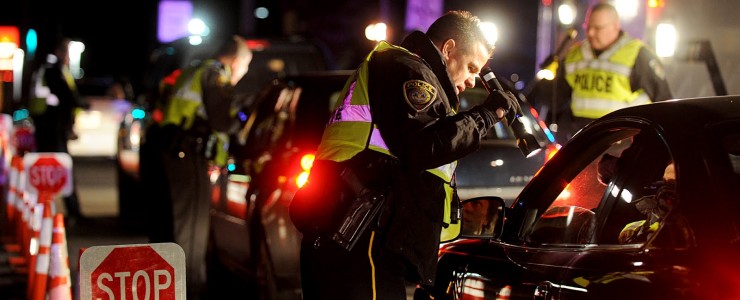
Sobriety or DUI checkpoints have been controversial since their inception. As is often the case when two strong competing interests clash, the matter ends up in court. In 1990, the US Supreme Court held that despite the Fourth Amendment concerns, sobriety checkpoints were a valuable tool as a means to control the dangers of drunk driving and were legally permissible if strict rules were followed. However, the matter remains unsettled 25 years later.
Are checkpoints effective in curtailing DUI?
The numbers suggest no. In general, most analysis of checkpoint data shows approximately a one percent rate of arrest among all the drivers passing through a checkpoint. Further, when compared to other DUI arrests, the conviction rates for those arrested at a checkpoint are typically lower. This is primarily due to the ability of an experienced DUI lawyer to attack the constitutionality of the checkpoint.
So checkpoints are allowed in all states?
No. Despite the Supreme Court’s ruling, 12 states do not permit sobriety checkpoints based on state statute or state interpretation of the Constitution. If you live in one of the 38 states other than those listed below or in the District of Columbia, you may experience a DUI checkpoint:
- Alaska
- Idaho
- Iowa
- Michigan
- Minnesota
- Montana
- Oregon
- Rhode Island
- Texas
- Washington
- Wisconsin
- Wyoming
Do the police have to tell drivers when a checkpoint will be in operation?
Yes. The place and time must be publicized in advance for two purposes: (1) to increase the deterrent effect and (2) to minimize the obtrusive impact on drivers.
How is it decided where the checkpoint will be established?
The location is supposed to be determined by policy makers not field officers based on several factors, among which are:
- Statistical evidence citing where heavy DUI arrests have occurred
- In a place that is clearly visible to drivers
- In a place that the safety of the drivers and laws enforcement personnel can be best assured
Is every car subject to a stop?
It depends. As the law has evolved over the years through various court cases, there were concerns about who was being stopped. Courts have ruled that the driver of every car can be subject to some method of examination or a formula that is pre-determined will be employed. For instance, the police will stop every fourth car and the driver will be asked a few questions.
What if I see a checkpoint and don’t want to pass through it?
The law requires the checkpoint to be established in a manner that allows a driver to clearly see in advance of the stoppage and have the opportunity to avoid it without consequence. As a practical matter, however, it is not unusual for law enforcement to monitor very closely those drivers who turn around and proceed in another direction.
What rights do I have if I am ordered to pull over?
If the police have followed the letter of the law in conducting the checkpoint, they still must have reasonable suspicion of a DUI to actually conduct a stop of a driver. This could be based on any number of factors such as the method of driving, an odor of alcohol on the driver’s breath or bloodshot eyes.
Do I have to submit to testing?
It is a common misconception that field sobriety tests are mandated by law. A driver is perfectly within his or her rights to refuse such testing. Often times the police use the results of FSTs to provide the probable cause for an arrest. However, in many instances, an arrest will nonetheless result even if the driver refuses to take the FST, and every state has what is known as implied consent laws that require a driver who has been arrested for suspicion of DUI to submit to blood alcohol content testing.
A sobriety checkpoint must be properly established and conducted in a manner consistent with the law to be valid. If not, evidence that was gathered as a result may be challenged in court. The police do make mistakes; if you have been arrested at a DUI checkpoint, it is prudent to contact a knowledgeable DUI lawyer as soon as possible.
If you have been stopped and arrested for DUI at a DUI check point, or otherwise, call Ticket Busters today for a consultation. (702) 666-6666.


